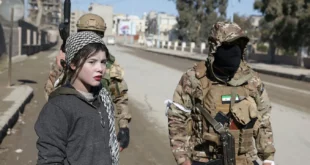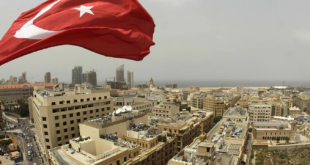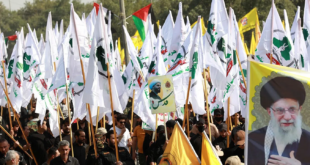AL ARISH (AFP) — Two Canadian women peacekeepers were wounded in a bomb blast Monday in Egypt’s Sinai Peninsula that officials described as a terrorist attack.
“Terrorists planted two gas canisters on the road and linked them to an electrical wire. They hid in nearby apricot groves and blew them up,” North Sinai provincial governor, Ahmed Abdel Hamid, told reporters.
A group calling itself “Egypt’s mujahedeen,” or holy warriors, later claimed responsibility for the attack in which two female Canadian peacekeepers from the Multinational Force and Observers (MFO) were lightly wounded.
“The lions of jihad… pounced on a vehicle of the multinational force, killing three Israelis and two Canadians and wounding two others,” claimed the Internet statement whose authenticity could not be confirmed.
There were no official reports of fatalities in the incident, which occurred on a road about 25 kilometres west of the Gaza Strip, where Israel on Monday began its historic operation to pullout from the occupied Palestinian territory.
Governor Abdel Hamid said only one of the bombs exploded and that the other was being examined by ordnance experts. Several Bedouin in the area had been arrested, he added.
The claim for responsibility, which appeared on an Islamist website, gave a similar version of events, saying the blast was triggered by “two gas canisters linked to an electric system.”
The MFO is an independent peacekeeping force not related to the United Nations, created as a result of the 1979 Israeli-Egyptian peace treaty and funded mainly by the two neighbours and the United States.
The MFO reported a blast at around 9:00am (0600 GMT) about one kilometre west of the military airport of Gurah, in the east of the Sinai Peninsula.
But it has not yet confirmed the identity of the wounded, nor could the Canadian authorities.
When Gaza’s 21 Jewish settlements are evacuated and Israeli troops have fully pulled out of the Gaza Strip, Palestinian forces will take over security responsibility for the flashpoint territory.
Egypt had played a key role in security arrangements linked to the pullout and has agreed with Israel to take responsibility for security at the border.
Israel fears cross-border arms smugglers will increase their activity after its troops depart.
A senior Egyptian official had told AFP last week that “the idea of involving the MFO after the Gaza withdrawal is being explored.”
Egyptian security sources had initially said that Monday’s explosion may have been caused by a landmine left over from one of Egypt’s wars with Israel in the Sinai.
The approximately 2,000-strong MFO is an international military force set up in 1982. It includes troops from 11 different countries, among them a large US contingent, and is based in two camps in the Sinai.
Several security officials in the North Sinai area visited the site of the blast, including the region’s security chief.
Security officials later said they also found traces of highly-explosive TNT at the scene of the explosion and suggested it may have been used to maximise the impact of the blast.
The blast came a day after Interior Minister Habib Adly announced the authorities had made progress in the investigations of the deadly July 23 bombings in the Red Sea resort of Sharm El Sheikh.
The semi-official Ahram newspaper reported Sunday that three suspects had been arrested in connection with the triple bombings that left nearly 70 people dead, including over a dozen foreigners.
The minister said investigators believed some of the people involved in the Sharm El Sheikh attacks were also involved in the bombing of three other Sinai resorts last October.
 Eurasia Press & News
Eurasia Press & News



